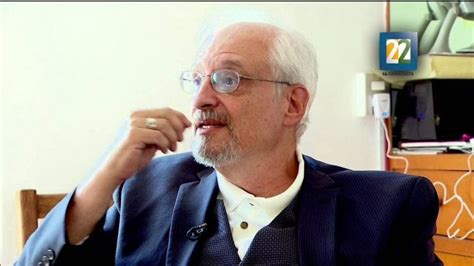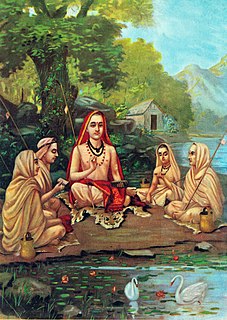A Quote by Edward de Bono
This new meta-system is very much in favor of the self, but a self that is based on a proper sense of dignity, not on an inflated ego. A person who dare not admit he is wrong inflates his ego but weakens his self.
Related Quotes
Then ego goes on growing, because the society needs you as an ego, not as a Self. The Self is irrelevant for the society; your periphery is meaningful. And there are many problems. The ego can be taught and the ego can be made docile and the ego can be forced to be obedient. The ego can be made to adjust, but not the Self. The Self cannot be taught, the Self cannot be forced. The Self is intrinsically rebellious, individual. It cannot be made a part of society.
The term "self" seems a suitable one for the unconscious substrate whose actual exponent in consciousness is the ego. The ego stands to the self as the moved to the mover, or as object to subject, because the determining factors that radiate outward from the self surround the ego on all sides and are therefore supraordinate to it. The self, like the unconscious, as an a priori existent out of which the ego evolves. It is, so to speak, an unconscious prefiguration of the ego. It is not I who create myself; rather, I happen to myself.
The child is born with a Self but not with an ego. The child develops the ego. As he becomes more and more social and related, ego develops. This ego is just on your periphery where you are related with others - just on the boundary of your being. So ego is the periphery of your being, and Self is the center. The child is born with a Self, but unaware. He is a Self, but he is not conscious of the Self.
In Buddhist ideology, the conventional self is that which is constructed in a way by the use of the pronoun, and when you realize there is no absolute ego there, no disconnected one, self, or ego, then that actually strengthens your conventional ego. It does so in the sense that then you realize it's a construction, and you can strengthen it in order to help others, or do whatever you're trying to do, it's not like you no longer know who you are. Then you can organize your behavior by using your ego, as it's now the pronoun.
"The first awareness of the child comes with his ego. He becomes aware of the "I", not of the Self. Really, he becomes aware first of the "thou". The child first becomes aware of his mother. Then, reflectively, he becomes aware of himself. First he becomes aware of objects around him. Then, by and by, he begins to feel that he is separate. This feeling of separation gives the feeling of ego, and because the child first becomes aware of the ego, ego becomes a covering on the Self. "
Central to Jungian psychology is the concept of "individuation," the process whereby a person discovers and evolves his Self, as opposed to his ego. The ego is a persona, a mask created and demanded by everyday social interaction, and, as such, it constitutes the center of our conscious life, our understanding of ourselves through the eyes of others. The Self, on the other hand, is our true center, our awareness of ourselves without outside interference, and it is developed by bringing the conscious and unconscious parts of our minds into harmony.
The basis of the self is not thought but suffering, which is the most fundamental of all feelings. While it suffers, not even a cat can doubt its unique and uninterchangeable self. In intense suffering the world disappears and each of us is alone with his self. Suffering is the university of ego-centrism.
As Hubert Benoit said, it is not the identification with the ego that is the problem, but the exclusive nature of the identification. When our self-identity expands beyond the ego, into the deeper psychic, then even into the Unborn and One Taste, the ego is simply taken up and subsumed in a grander identity. But the ego itself remains as the functional self in the gross realm, and it might even appropriately be intensified and made more powerful, simply because it is now plugged into the entire Kosmos.

































